Why Do Dogs Eat Poop? Understanding the Root Causes
Before we dive into solutions, it’s important to understand why dogs eat poop in the first place. This behavior can stem from several causes:
Medical Reasons
- Nutritional deficiencies (especially B vitamins and digestive enzymes)
- Malabsorption issues preventing proper nutrient uptake
- Increased hunger from conditions like diabetes or Cushing’s disease
- Intestinal parasites “stealing” nutrients
- Thyroid problems affecting metabolism
Behavioral Causes
- Ancestral instincts (wolves would eat feces to keep dens clean)
- Learned behavior from mother dogs (who clean puppies by eating their waste)
- Boredom or lack of mental stimulation
- Anxiety or stress, especially in rescue dogs
- Attention-seeking behavior (your reaction reinforces the habit)
Environmental Factors
- Poor diet quality leading to undigested nutrients in stool
- Confusion from eating near potty areas
- Easy access to cat litter boxes or other animals’ waste
- Inadequate supervision during outdoor time
Identifying the underlying cause can help you choose the most effective remedy. If your dog suddenly starts eating poop after never showing this behavior before, or if they display other symptoms like weight loss, lethargy, or changes in appetite, consult your veterinarian to rule out medical issues.
7 Effective Home Remedies to Stop Your Dog from Eating Poop
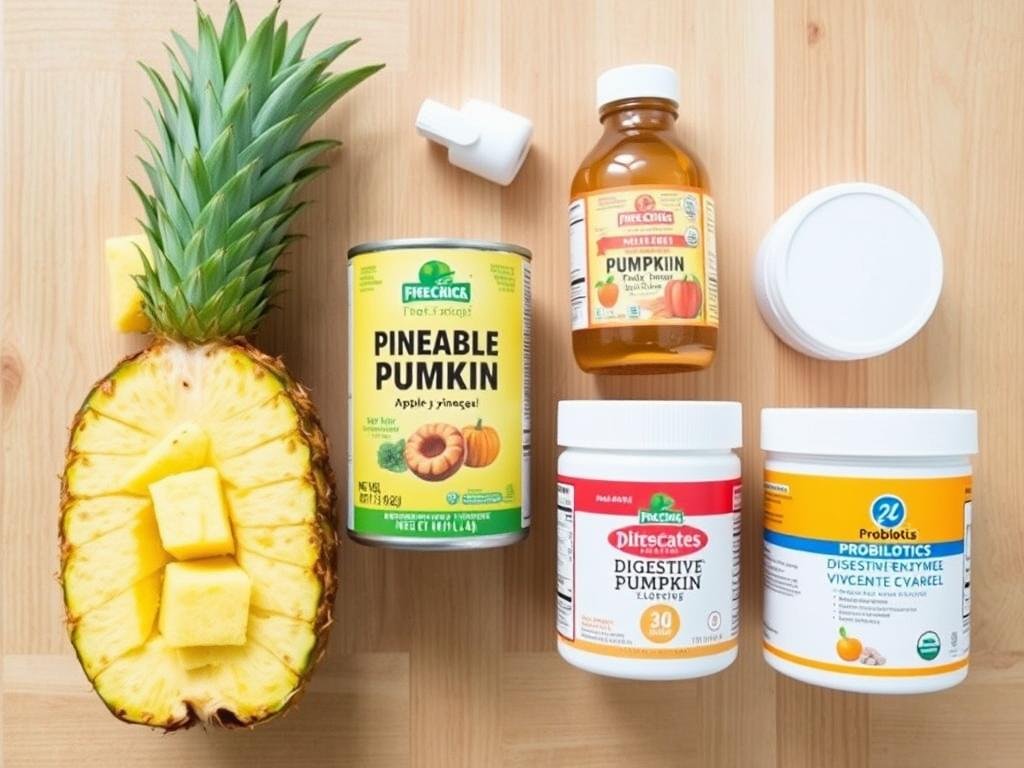
1. Pineapple: Nature’s Deterrent
Fresh pineapple contains bromelain, an enzyme that changes the taste of your dog’s poop, making it less appetizing. The theory is that when partially digested, pineapple makes the stool taste bitter to dogs.
How to use: Add 2-3 small chunks of fresh pineapple (never canned) to your dog’s food daily. Start with a small amount to ensure your dog doesn’t experience digestive upset. This method works best for dogs who eat their own stool rather than other animals’ waste.
2. Pumpkin: The Digestive Helper
Canned pumpkin (not pumpkin pie filling) is a superfood for dogs that can help with coprophagia in two ways: it makes stool less appealing and improves overall digestion. The fiber in pumpkin helps food move through the digestive system more efficiently, potentially reducing the palatability of waste.
How to use: For small to medium dogs, add 1-2 teaspoons of pure canned pumpkin to their daily food. For larger breeds, use 1-2 tablespoons. Be careful not to overdo it, as too much fiber can cause diarrhea.
3. Digestive Enzyme Supplements
Many cases of coprophagia stem from poor nutrient absorption. Digestive enzyme supplements can help your dog’s body break down food more effectively, ensuring they get all the nutrients they need from their diet rather than seeking them in waste.
How to use: Choose a high-quality digestive enzyme supplement formulated specifically for dogs. Follow the dosage instructions on the package based on your dog’s weight. Look for products containing protease, amylase, lipase, and cellulase for complete digestive support.
Pro Tip: Try a Comprehensive Solution
While home remedies can help, many dog owners find the fastest and most reliable results with Stop Eat Poop, a specially formulated supplement that addresses multiple causes of coprophagia at once. It contains digestive enzymes, probiotics, and taste-altering compounds that work together to eliminate this behavior.
4. Apple Cider Vinegar
Some dogs eat poop due to hydrochloric acid deficiency. Apple cider vinegar (ACV) can help balance stomach acid levels and improve digestion, potentially reducing the urge to eat feces.
Important: Always consult your veterinarian before adding apple cider vinegar to your dog’s diet, especially if they have any existing health conditions.
How to use: Add approximately 1 teaspoon of raw, unfiltered apple cider vinegar (with “the mother”) per 25 pounds of body weight to your dog’s water or food daily. Monitor for any digestive upset and discontinue if you notice adverse effects.Learn more about how to stop a dog from barking.
5. Environmental Management
One of the most effective ways to stop poop eating is simply to prevent access to it. This approach requires diligence but can break the habit by eliminating opportunities.
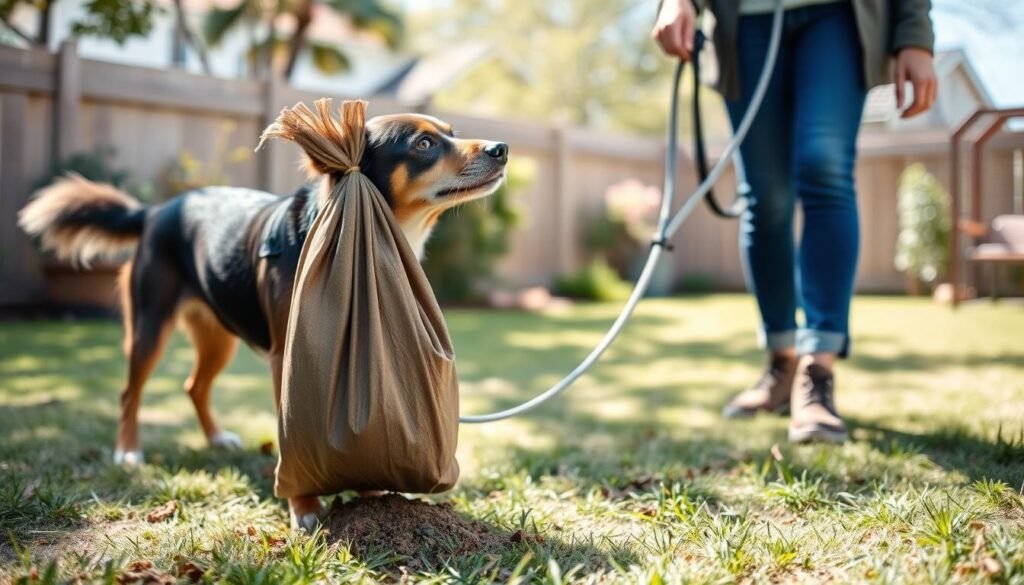
How to implement:
- Clean up waste immediately after your dog eliminates
- Keep your dog leashed during walks to prevent access to other animals’ waste
- Use a basket muzzle during walks if the behavior persists
- For multi-pet households, block access to the cat’s litter box using baby gates or specialized litter box furniture
6. Training: The “Leave It” Command
Teaching your dog a solid “leave it” command can be invaluable for preventing poop eating when you’re present. This training takes time and consistency but can be highly effective.
Training steps:
- Start with basic “leave it” training using treats in your closed hand
- Progress to placing treats on the floor
- Once reliable with treats, practice the command when approaching feces during walks
- Reward generously when your dog successfully ignores or turns away from poop
- Practice consistently for several weeks until the response becomes automatic
7. Mental Enrichment and Exercise
Boredom and anxiety can drive dogs to eat poop. Increasing physical exercise and mental stimulation can reduce this behavior by addressing the underlying emotional needs.
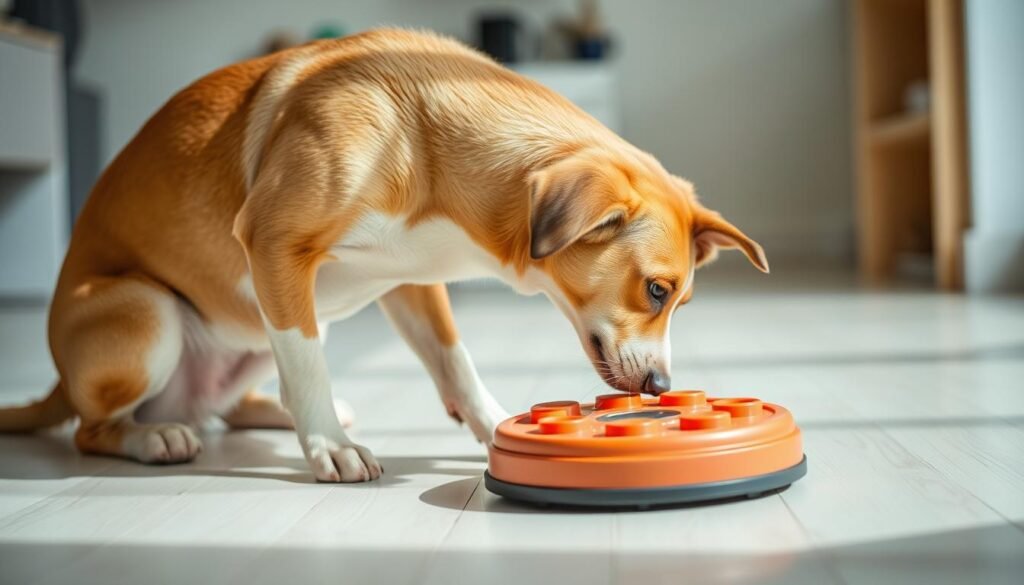
Enrichment ideas:
- Interactive puzzle toys and food dispensers
- Regular daily walks and play sessions
- Snuffle mats for natural foraging behavior
- Rotating toy selection to maintain interest
- Training sessions that challenge your dog mentally
Dietary Considerations for Preventing Coprophagia
Your dog’s diet plays a crucial role in preventing poop eating. Consider these nutritional factors:
Quality Matters
Low-quality dog foods often contain fillers that pass through your dog’s system undigested, making their waste more appealing to eat. Look for high-quality dog food with meat as the first ingredient and minimal fillers.
Feeding Schedule
Feeding smaller meals more frequently throughout the day can help maintain stable blood sugar levels and reduce hunger-driven poop eating. Most adult dogs do well with two meals daily, while puppies may need three or four.
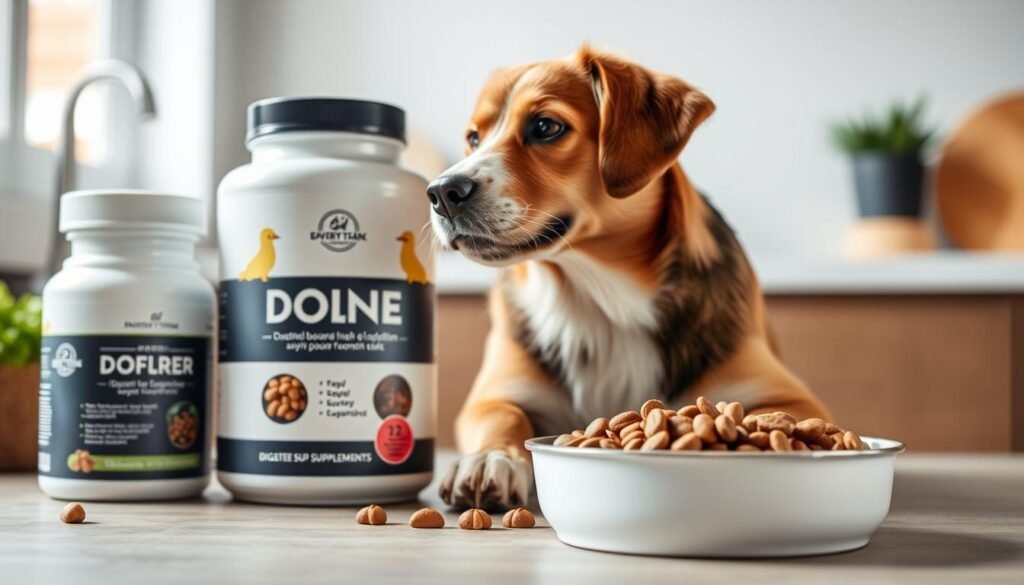
Nutritional Supplements That Can Help
| Supplement | Benefits | Dosage Notes |
| Probiotics | Improves gut health, aids digestion, strengthens immune system | Choose dog-specific formulas with multiple strains |
| B-Complex Vitamins | Addresses potential B vitamin deficiencies that can trigger coprophagia | Consult vet for proper dosing based on dog’s size |
| Kelp or Seaweed | Provides trace minerals that may be lacking in diet | Small amounts only; excess can affect thyroid function |
| Papaya | Contains natural digestive enzymes similar to pineapple | Small fresh pieces as treats; remove seeds first |
When Home Remedies Aren’t Enough: Signs to See Your Vet
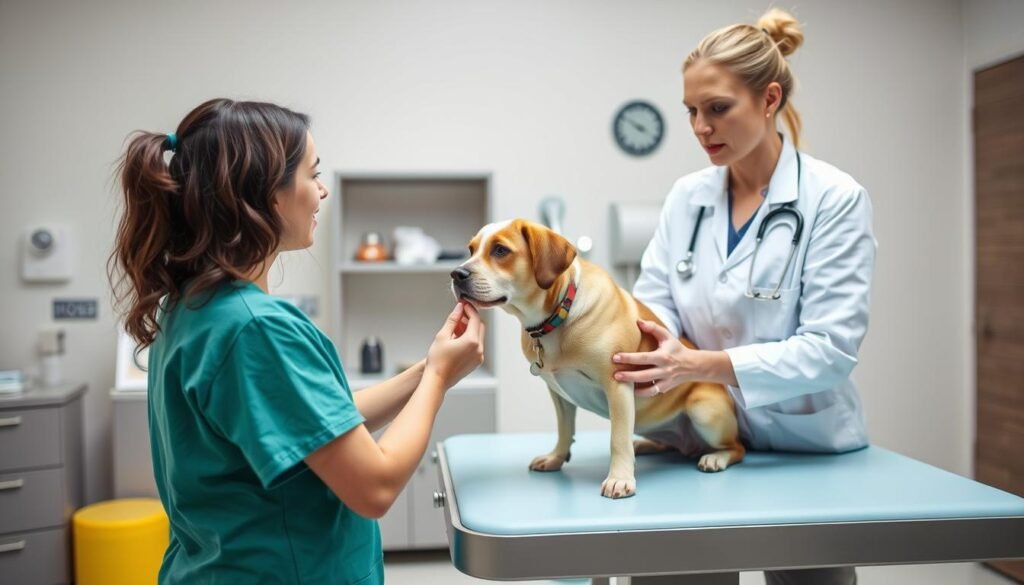
While home remedies can be effective for many dogs, sometimes coprophagia indicates an underlying medical condition that requires veterinary attention. Contact your vet if:
- Your dog suddenly starts eating poop after never showing this behavior before
- The behavior persists despite trying multiple remedies
- Your dog is losing weight despite normal eating habits
- You notice other symptoms like increased thirst, lethargy, or changes in appetite
- Your dog seems excessively hungry all the time
- There are changes in your dog’s stool consistency or frequency
Your veterinarian may recommend blood tests to check for conditions like diabetes, thyroid disorders, or malabsorption issues. They can also test for intestinal parasites that might be contributing to the behavior.
For a Vet-Designed Solution, Try Stop Eat Poop
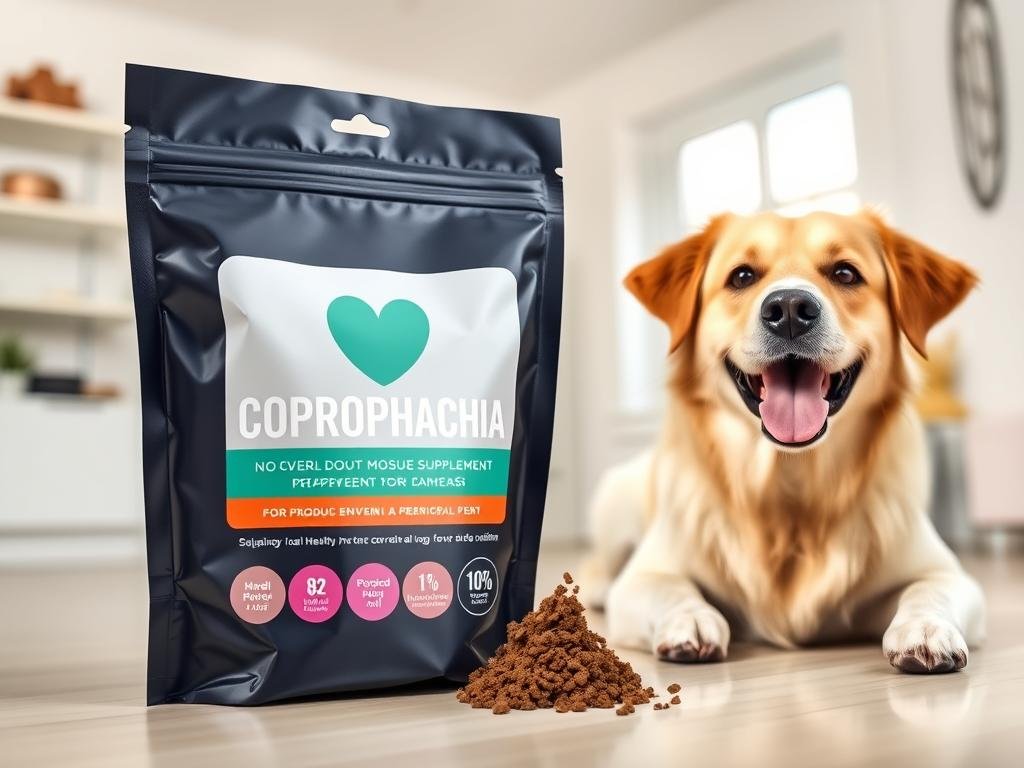
If you’ve tried home remedies without success, it may be time for a more comprehensive approach. Many veterinarians recommend specialized products designed specifically to address coprophagia from multiple angles.
The Complete Solution to Stop Poop Eating
Stop Eat Poop is a veterinary-formulated supplement that combines multiple approaches to stop coprophagia effectively. This comprehensive solution:
- Provides essential digestive enzymes to improve nutrient absorption
- Contains probiotics to support gut health
- Includes taste-altering compounds that make waste unpalatable
- Addresses nutritional deficiencies that can trigger the behavior
- Is safe for daily use with no harmful side effects
“After trying everything from pineapple to pumpkin without success, I was at my wit’s end with my Lab’s disgusting habit. Stop Eat Poop worked within the first week, and we haven’t had an incident since. I can finally let my dog kiss me again!”
Long-Term Prevention Strategies
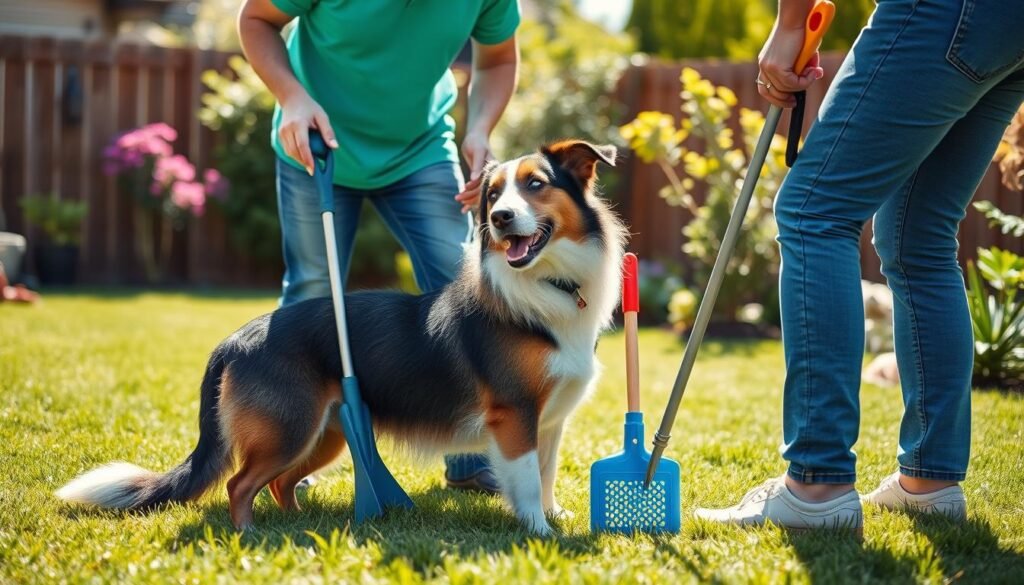
Beyond remedies and supplements, these long-term strategies can help prevent your dog from eating poop:
Management Techniques
- Keep your yard clean by picking up waste immediately
- Supervise your dog during bathroom breaks
- Use a leash during walks to maintain control
- Consider a basket muzzle for persistent cases
- Block access to cat litter boxes
Lifestyle Adjustments
- Ensure adequate daily exercise
- Provide mental stimulation through toys and training
- Maintain a consistent feeding schedule
- Reduce stress through routine and positive reinforcement
- Consider professional training for persistent cases
Consistency is key when implementing these strategies. It may take several weeks of diligent management before you see lasting results.
Frequently Asked Questions
Is it dangerous for dogs to eat poop?
While the behavior itself isn’t immediately harmful, eating feces can expose your dog to parasites, bacteria, and viruses. Dogs who eat poop from other animals are at higher risk for intestinal parasites like roundworms, hookworms, and giardia. Additionally, if your dog consumes the waste of an animal that has recently taken medication, they could potentially ingest those drugs as well. Beyond health concerns, this habit also means your dog is putting their mouth on various surfaces in your home and possibly licking family members after eating waste, which creates hygiene issues.
When should I see a veterinarian about my dog eating poop?
Consult your veterinarian if the behavior starts suddenly, persists despite trying multiple remedies, or is accompanied by other symptoms like weight loss, increased thirst, changes in appetite, or lethargy. These could indicate underlying medical conditions such as diabetes, thyroid disorders, or malabsorption issues that require professional treatment. Your vet can run appropriate tests to rule out medical causes and provide guidance tailored to your dog’s specific situation.
How long does it take to stop a dog from eating poop?
The timeline varies depending on the cause of the behavior and the solution implemented. Environmental management (preventing access to waste) works immediately but requires ongoing diligence. Dietary supplements and additives typically take 1-3 weeks to show results. Training approaches may take several weeks to months of consistent practice. For the most stubborn cases, a combination of approaches is often most effective. Specialized products like Stop Eat Poop typically show results within 5-10 days when used as directed.
Will my puppy grow out of eating poop?
Some puppies do outgrow this behavior as they mature, particularly if it stemmed from exploratory behavior or copying their mother. However, if the habit becomes established, it’s less likely to resolve without intervention. It’s best to address the behavior early through proper management, training, and appropriate supplements rather than hoping your puppy will simply outgrow it.
Conclusion: Patience and Consistency Are Key
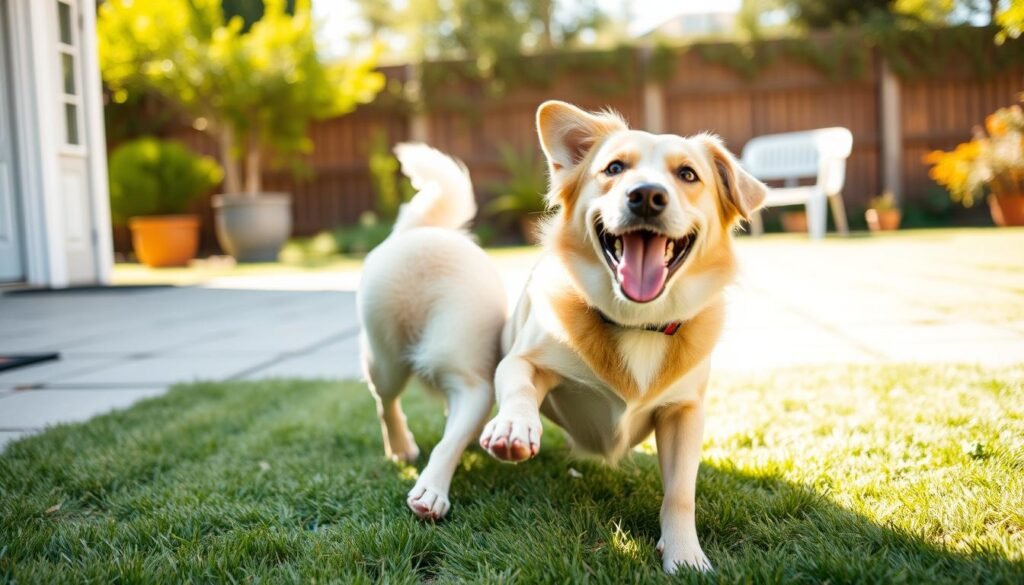
Dealing with a dog that eats poop can be frustrating, but with the right approach, this behavior can be managed and often eliminated. Start with the home remedies outlined above, ensure proper nutrition and exercise, and maintain a clean environment to limit opportunities for coprophagia.
For persistent cases or when you need faster results, consider a specialized product like Stop Eat Poop that addresses multiple causes simultaneously. Remember that patience and consistency are essential—most dogs respond well to a combination of management, training, and appropriate supplements.
By understanding the root causes of why dogs eat poop and implementing these solutions, you can help your furry friend break this unpleasant habit and enjoy a healthier, more hygienic relationship with your pet.


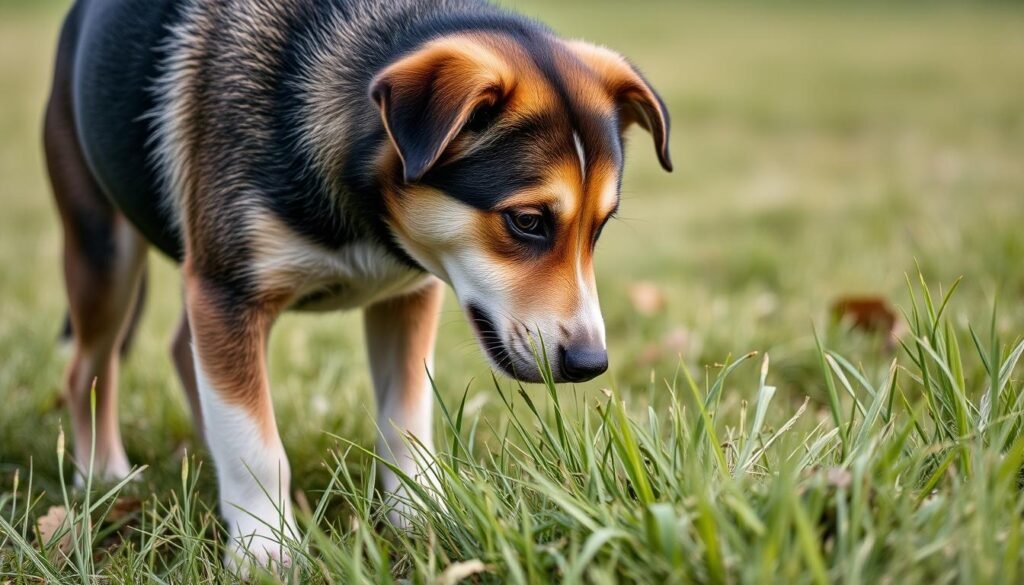
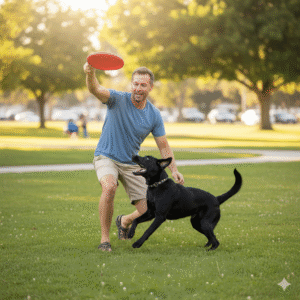

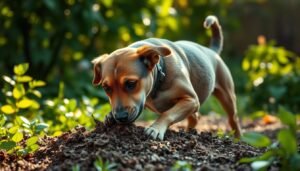
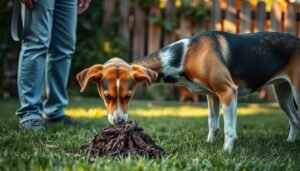
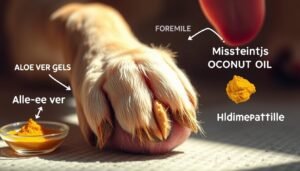





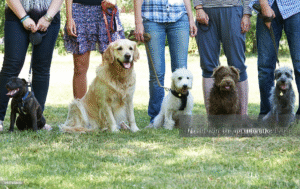
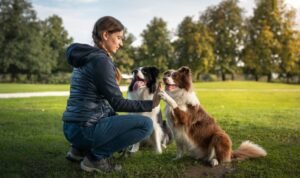



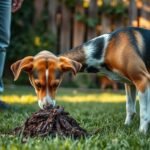
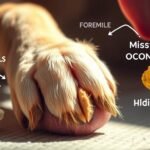


One Response